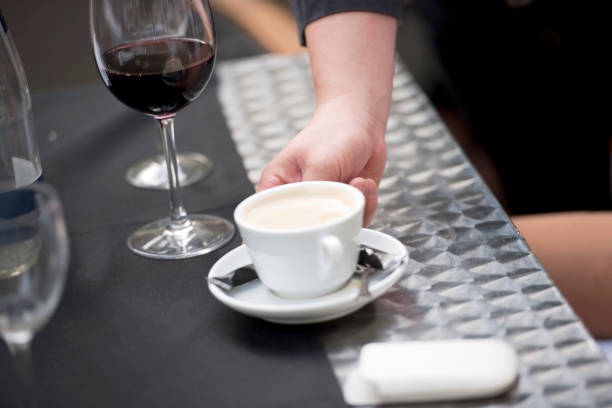The ritual of enjoying a beverage after a hearty meal is a tradition that spans cultures and cuisines. Whether it’s a rich cup of coffee, a fine glass of wine, or a soothing pot of tea, the choice of post-meal libation is a matter of personal preference and cultural influence. While each of these beverages offers a unique experience, they also play a role in aiding digestion. In this exploration of coffee, wine, and tea as digestive choices, we’ll uncover the science, traditions, and personal considerations that help you decide which elixir is perfect for you after indulging in a big meal.
The Age-Old Tradition of Digestive Elixirs
The concept of using beverages to aid digestion is far from a recent trend. In fact, it’s deeply rooted in centuries of culinary history. Across the globe, you’ll find various traditions of post-meal drinks designed to alleviate that full, sometimes uncomfortable feeling. Let’s delve into these traditions:
The Italian Art of Espresso
Italians have mastered the art of enjoying a short, intense shot of espresso after a meal. It’s not just about savoring the robust flavors of coffee; it’s also a digestive aid. The caffeine in espresso stimulates the production of gastric juices, which can help with digestion.
French Digestif Delights
In France, a post-meal ritual often involves a small glass of brandy or liqueur. These alcoholic beverages are believed to aid digestion by relaxing the stomach muscles and promoting a sense of well-being.
Tea in the East
In many East Asian countries, tea, especially green tea, is a popular choice for aiding digestion. The compounds in green tea are thought to help break down fats and ease bloating. In China, pu-erh tea is renowned for its digestive benefits and is often consumed after meals.
The Mediterranean Love for Wine
Mediterranean cultures have a tradition of sipping wine with their meals, especially red wine. This practice is not only about enhancing the dining experience but also potentially improving digestion. Resveratrol, a compound found in red wine, has been associated with various health benefits, including aiding digestion.
The Science Behind Digestive Elixirs
Let’s explore the scientific aspects of how coffee, wine, and tea contribute to digestion:
Coffee: The Caffeine Catalyst
The caffeine in coffee acts as a stimulant on the central nervous system. It can also stimulate the stomach, increasing gastric acid production. While this can aid in digestion, it’s important to note that too much coffee can lead to acidity and discomfort. A small cup of black coffee is often recommended for its digestive benefits.
Wine: The Phenolic Potential
Red wine, in particular, contains a group of antioxidants called phenols, including resveratrol. These compounds have anti-inflammatory and anti-oxidative properties, which may benefit digestion. It’s also worth mentioning that alcohol, when consumed in moderation, can relax the muscles of the digestive tract, potentially alleviating discomfort.
Tea: The Digestive Aid
Tea, particularly herbal teas like peppermint and ginger, can have a calming effect on the stomach. Peppermint tea can help alleviate gas and indigestion, while ginger tea is known for its soothing properties. Green tea, on the other hand, contains polyphenols that may help break down fats.
Personal Considerations
The choice between coffee, wine, and tea as a post-meal beverage ultimately comes down to personal preferences and dietary restrictions. Here are some factors to consider:
1. Caffeine Sensitivity
If you’re sensitive to caffeine or it tends to disrupt your sleep, you might want to opt for decaffeinated coffee or explore the world of herbal teas. The last thing you need after a satisfying meal is a sleepless night.
2. Alcohol Tolerance
While a glass of wine can be a delightful and digestive choice, it’s essential to be mindful of your alcohol tolerance. Excessive alcohol consumption can lead to its own set of digestive issues.
3. Herbal Tea Remedies
Herbal teas like chamomile, ginger, or fennel are renowned for their digestive benefits. Consider these soothing options to ease post-meal discomfort.
4. Cultural Traditions
Sometimes, the best choice is the one that aligns with your cultural traditions and personal rituals. If you come from a culture with a strong tradition of a specific post-meal drink, it can add a meaningful and comforting touch to your dining experience.
5. Individual Digestive Needs
If you have specific digestive concerns, such as bloating or indigestion, consider which beverage might best address these issues. Peppermint tea, for instance, is known for its ability to alleviate bloating, while ginger tea can help with nausea.
The Art of Moderation
Regardless of your choice, it’s essential to practice moderation. Overindulging in any beverage, whether it’s coffee, wine, or tea, can lead to its own set of issues. The goal is to enhance your post-meal experience and promote comfortable digestion.
A Personal Decision
In the end, whether you choose coffee, wine, or tea after a big meal is a personal decision. Each of these beverages offers its own set of advantages, and your choice may vary depending on the meal, your mood, and cultural influences. The key is to savor the moment, enjoy the company, and let your post-meal elixir of choice be the finishing touch to a satisfying dining experience.
